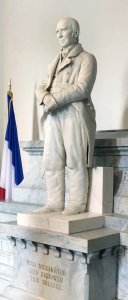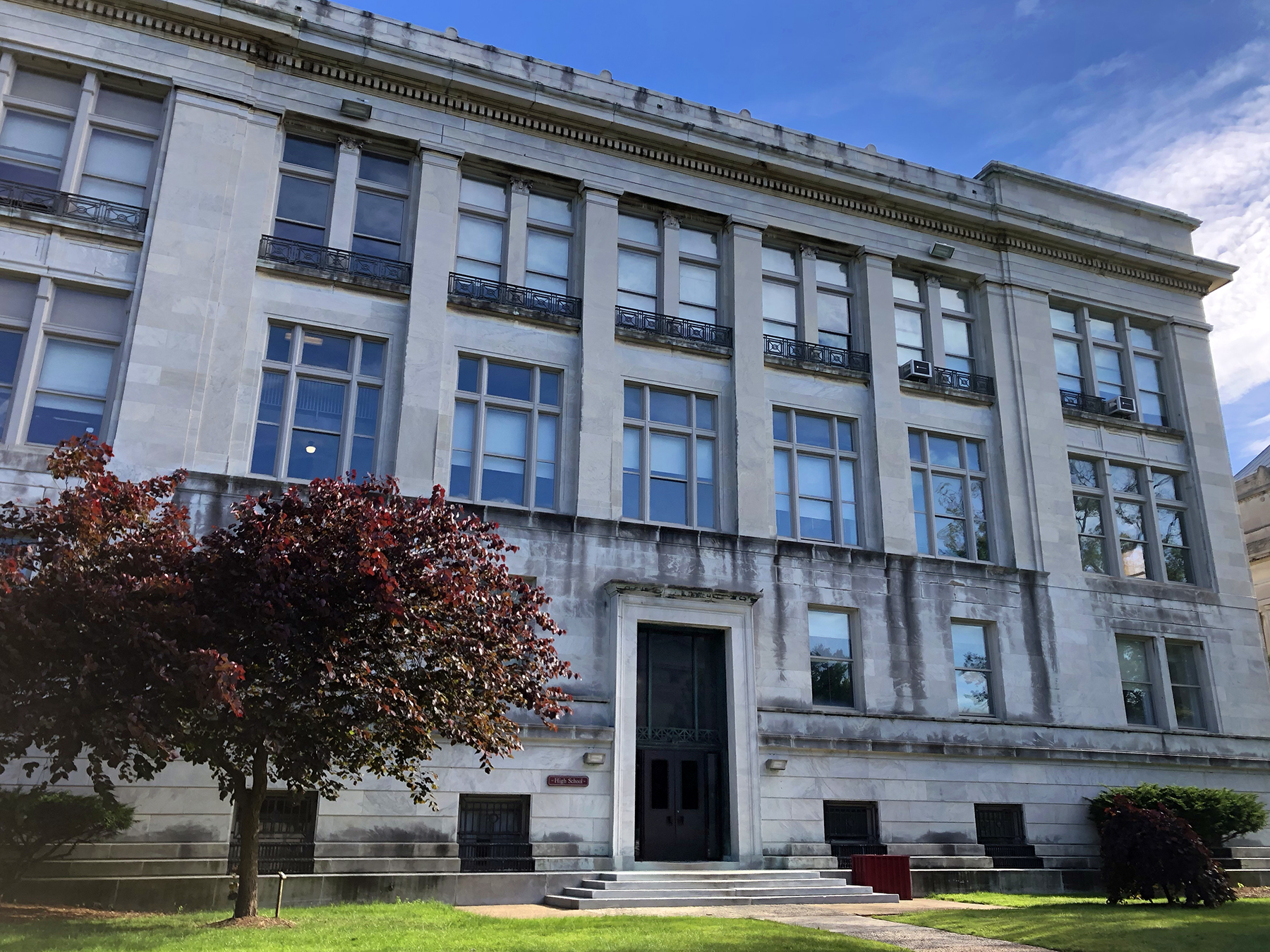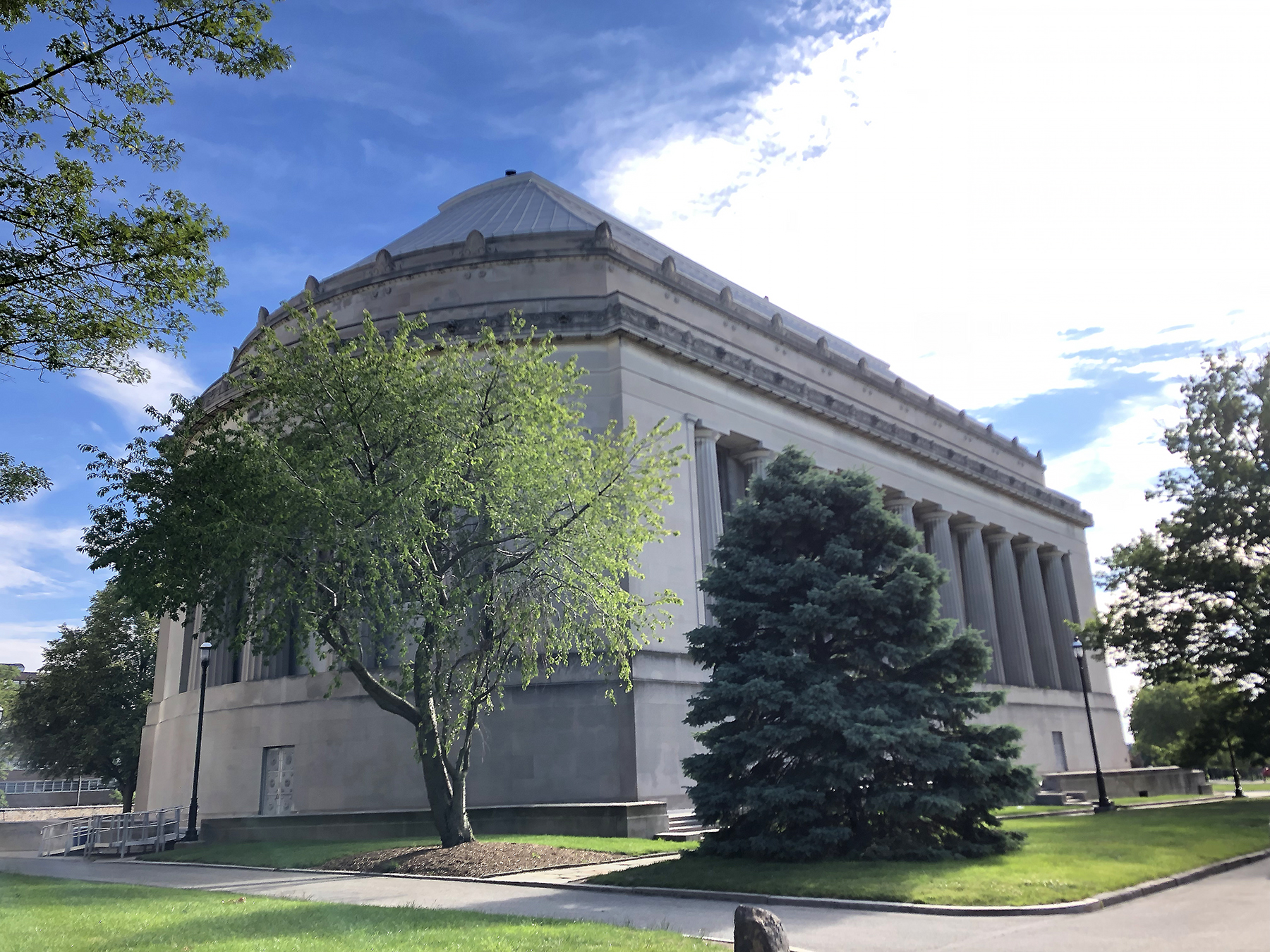Welcome, Girard!
Opportunity Education is proud to announce that Girard College High School is the third US Quest Forward Academy.
Girard College is a 5-day boarding school for grades 1 through 12 in Philadelphia, Pennsylvania. The high school on campus focuses on hands-on research and the exploration of the city as an opportunity for endless, unique learning experiences, making it a perfect fit for a Quest Forward Academy.

The school was founded in 1848 due to the generous endowment of Stephen Girard. Born in 1750, Girard was a merchant, bank owner, and one of the wealthiest men in America during his lifetime. His personal credo was “my deeds must be my life.” This can be seen in his commitment to educating the next generation of young Americans.
The school’s implementation of Quest Forward Learning is a collaborative effort between many members of both Girard College and Opportunity Education. President of Girard College Heather Wathington and Deans AJ Ernst and John Young each spoke to their role, in interviews or emails, in Girard’s transition to Quest Forward Learning and what their hopes are for the future the school’s future.
Heather Wathington, President of Girard College
 Tell us about your role at Girard College High School.
Tell us about your role at Girard College High School.
I am the head of Girard College; I’ve been here for about a year. Girard is 170 years old, and was set up on a college model, which is why I’m a president instead of a head of school. As the president I have all oversight and strategic responsibility for all matters concerned with the school. I’m responsible for executing on the expectations and outcomes that Stephen Girard had for his wealth and this college.
How was Quest Forward Learning chosen to be implemented at Girard College High School?
In my former post as the head of Maya Angelou School, we tried to implement pieces of the Quest Forward Learning curriculum. It was hard to get the teachers to integrate it into what they were already doing and what they were already responsible for for that year. And I didn’t structure goals for my school leader around it. So I think the implementation of it was less than what we had hoped for.
But what did work was that Manuel and I really struck up a professional relationship. We had really, really similar ideas about learning, the condition of secondary education, about the challenges of educating kids in poverty and what that means.
So he came up to visit [Girard] when I came here, so he could get a sense of it. I showed him around. I said “I think there’s some real problems at my high school. I haven’t exactly figured out how to solve it just yet but we’re working on it.” And so I think a lot of our philosophical conversations that we were able to have about habits, skills, and content really kind of came together. More and more, we just kept talking about Quest.

What interesting challenges in implementing Quest Forward Learning has Girard overcome?
First of all, we’re very much at the start. We’re still figuring some things out. One of the things we’re trying to think through this year is, if next year our 8th graders start with Algebra 1, are we introducing quests in 8th grade? What are the implications of that?
I think we’ll find many others. I think it’s a very different approach than what our students have been used to, but I think that’s consistent with the other academies as well. So we just know there’s going to be a learning curve for students to really become intentional learners. Which I feel is something I’ve really written about since the early 2000’s—about the importance of intentional learning and how to make sure students are beginning to drive their own learning and their own approaches to learning.
What about Quest Forward Learning are you most excited to bring to Girard College High School?
I love the fact that it endeavors to be relevant. It’s a fascinating way to learn. I think that’s the piece that I find really, really exciting and novel.
You’re going to learn something by gardening, but you’re really going to learn quite a bit of algebra. You’re going to learn something about bridges, but you’re going to learn a lot about algebra and physics. So I love the integrated approach. I love that they will 1. See the relevance, and 2. Be able to understand the complexity of what goes into a lot of things that they take for granted. So that’s a piece that I am most excited about.
Secondarily I’m pretty excited about the habits and skills. I think those are really, really important, and they’re not things that average typical American high schools focus on. We [already] focus on character, and tell kids: “this is what respect looks like,” and “this is what disrespect looks like,” which is important, but we don’t necessarily give them habits for life.
We don’t teach them the importance of skills, and in a skills-based world I think it’s really important to begin pivoting their attention. You can ask Siri a question and get an answer to a fact. But how do you use that knowledge? I think it’s our job to teach them the ways in which they can use and deploy information and knowledge.
John Young and AJ Ernst, Deans of Girard College High School
Tell us about your role at Girard College High School.
We are the Deans of the relaunch of Girard College High School, a Quest Forward Academy, composed of just over 60 freshmen and sophomores. We feel so fortunate to be working with such an awesome team of educators!
What about Quest Forward Learning are you most excited to bring to Girard College High School?
We are most excited about applying the Quest Forward Learning Principles to enhance our mission to empower students to lead meaningful change that is locally relevant and globally informed.


